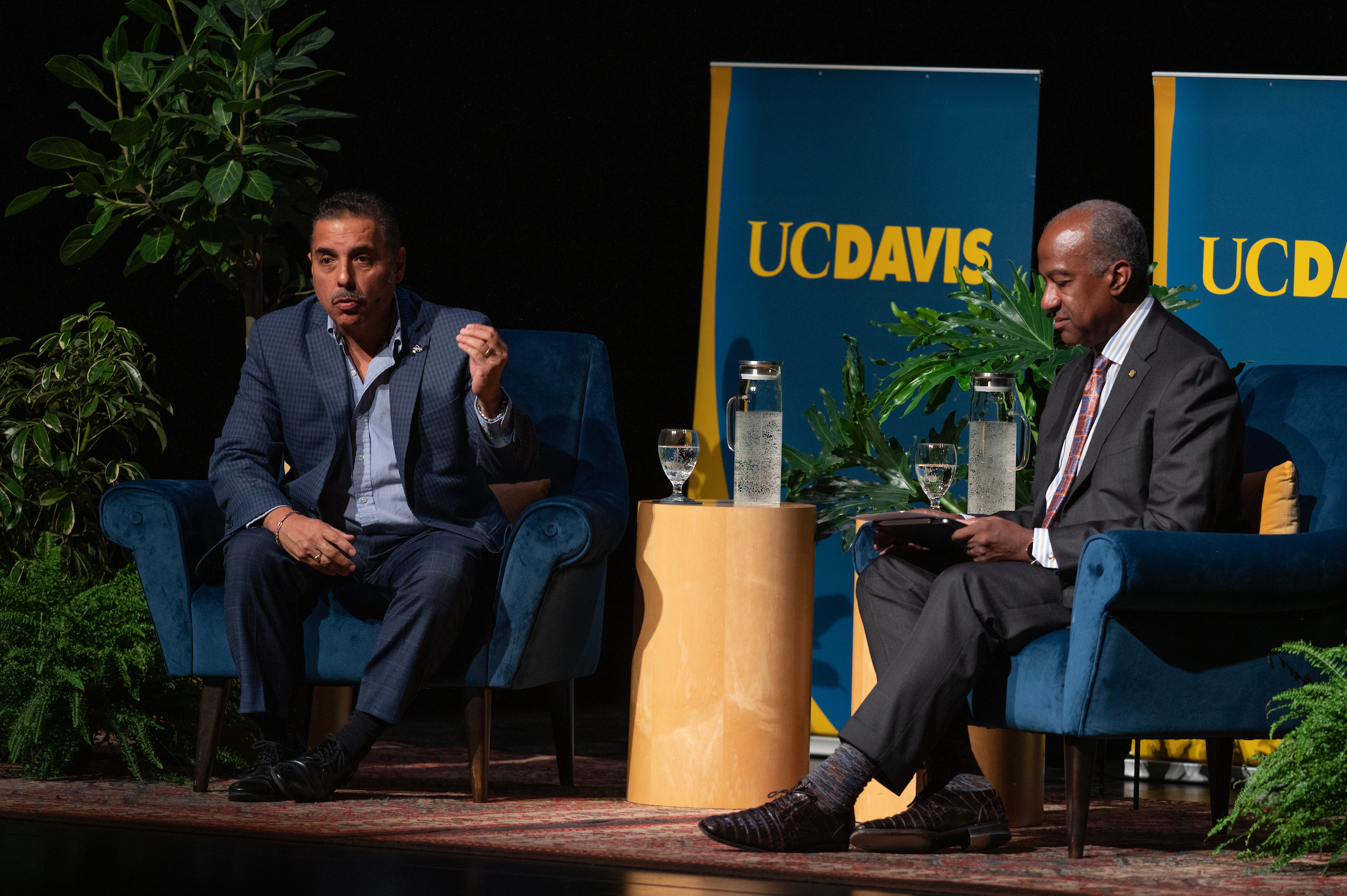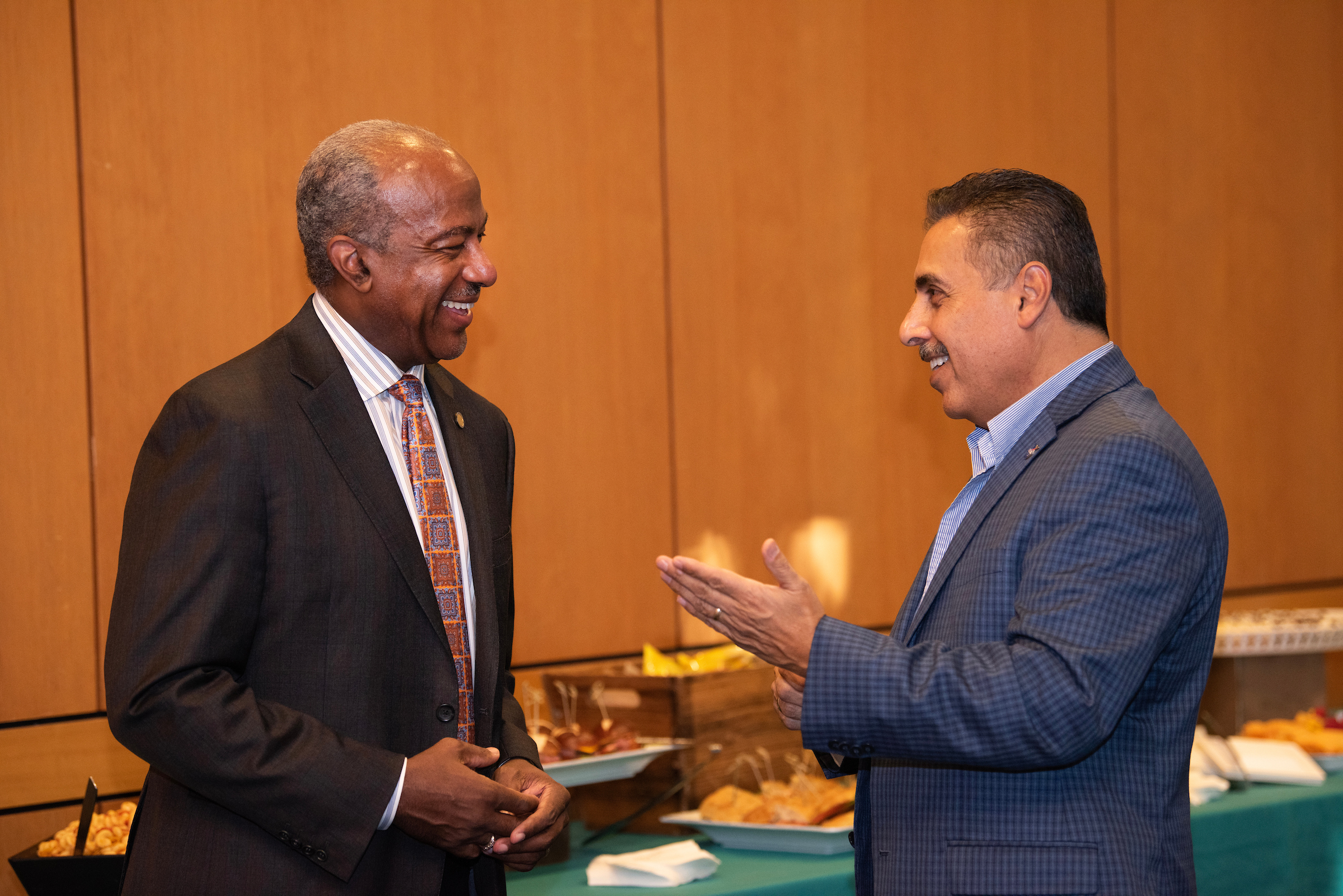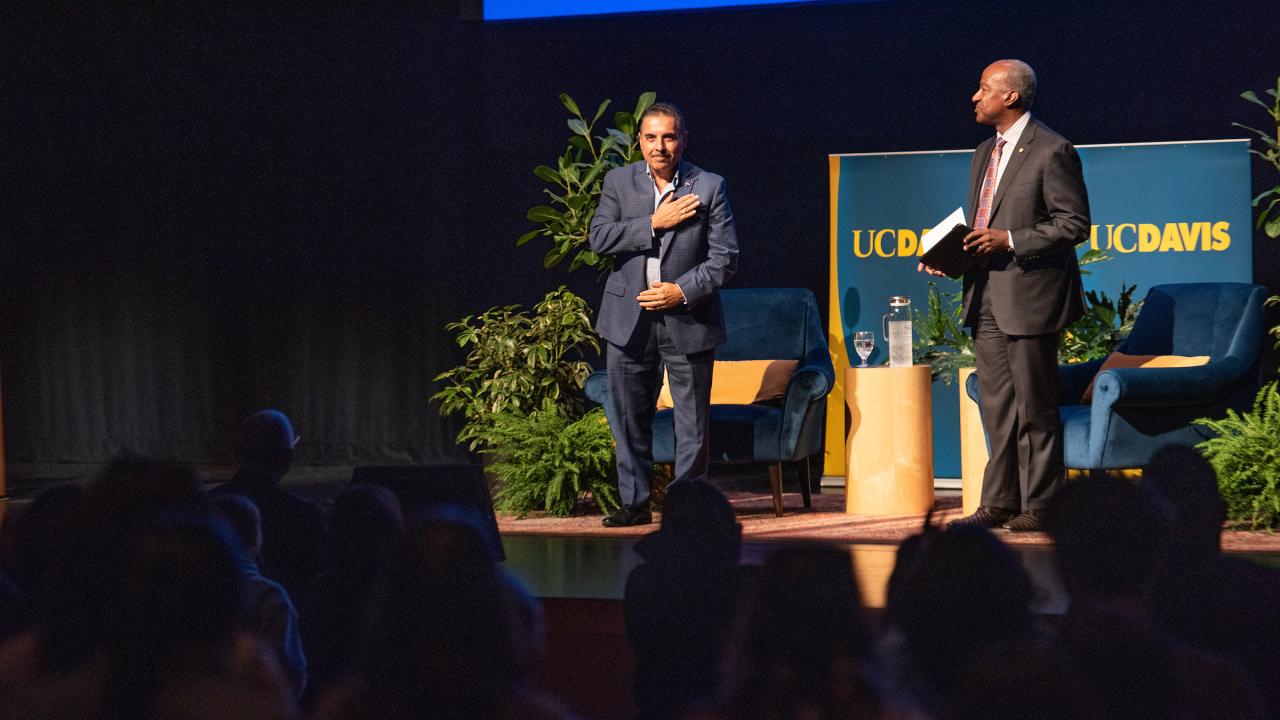In the scene, future NASA flight engineer José Hernández is a 7-year-old boy sitting with his siblings in the backseat of the family car circa 1969. They’re staring at their young hands and fingers, bandaged and dirty from hours spent working in the fields.
COLLOQUIUM REPLAY
Hernández’s father and mother sit in the driver and passenger seats. His father points to the scene before them: rows and rows of families like them, tilling fields until the next generation does the same. In a moment of exhaustion and frustration, he tells his children the scene is their future, far from Hernández’s dream of seeing Earth from space.
Hernández’s journey is brought to cinematic life in the new film A Million Miles Away. Produced by Amazon Studios, the film was screened last week at the Mondavi Center as part of the Chancellor’s Colloquium, featuring Chancellor Gary S. May in conversation with leading and inspiring figures.
The film chronicles Hernández’s 30-year journey from missing elementary school so he could work seasonally in California’s fields with his family to becoming the first migrant farm worker to travel to space, in 2009. He was appointed in 2021 to the UC Board of Regents by Gov. Gavin Newsom for a term that concludes in 2033.
Film chronicles growth, lessons
Hernández is played by actor Michael Peña, who is joined alongside Rosa Salazar as Hernández’s wife, Adela, and Bobby Soto as Hernández’s close cousin, Beto. Directed by Alejandra Márquez Abella, the film highlights scenes of incremental triumph, familial sacrifices and instances of racial bias.
The film is organized in according to five key years of Hernández’s journey — 1969, 1984, 1999, 2003, and 2008 — and the five ingredients for success Hernández gleamed from his parents.
Those ingredients — a goal, calculating the distance to that goal, charting a road map, preparation, and work ethic — come into focus in 1969 when a young Hernández watches “el hombre en la luna” (“the man on the moon”) live on television. With a crayon he drew a corn stalk modified into a spaceship and began his dream of going to space.
As Hernández, played by Peña, says in the film, “Who better to leave this planet and dive into the unknown than a migrant farm worker?”
Conversation provides insight, advice
RSVPs for the free event filled so quickly the screening was moved from the Mondavi Center's Vanderhoef Studio Theatre into the larger Jackson Hall. School buses unloaded local students for the screening. Introductory remarks were made by Jeremy Ganter, executive director of the Mondavi Center. After the screening, Hernández received a standing ovation.
The fields from which Hernández’s story began are dozens, not millions, of miles away, an awareness Hernández’s brought into the conversation with May. The UC Regent recounted growing up on the east side of Stockton and graduating from Franklin High School.
“It’s an American story," May said about the film, before saying to Hernández, “and you’re an American hero in my book.”

Hernández earned a Bachelor of Science in electrical engineering from the University of the Pacific and his Master of Science from UC Santa Barbara before a 14-year career at the Lawrence Livermore National Laboratory, constantly preparing himself to work for NASA.
He ultimately joined Shuttle mission Discovery (STS-128) which completed the final construction of the International Space Station in 2009. It left Houston with seven tons of equipment, traveling around the earth "once every ninety minutes," Hernández told Chancellor May.
Hernández told May he had "the best seat in the house" directly behind the captain and pilot, with a panoramic view he worked nearly 30 years to witness.
May asked Hernández about the process and hurdles of making the film, and if there were any parts of the astronaut’s journey that didn’t make the final cut. Hernández responded with a story about working on a project at the Lawrence Livermore National Laboratory that ultimately helped create “the first full field digital mammography system for the earlier detection of breast cancer.”
In response to the 100-plus questions Hernández received over Zoom, hard work and perseverance were resounding themes, with a particular note to students on campus.
"Take advantage of all the resources," he said, noting he himself took tutoring courses offered by his university.
The conversation closed with Hernández receiving a second standing ovation. Hernández’s story continues to break barriers and build new opportunities for those who, when looking up at the stars, find themselves.

Watch the Chancellor’s Colloquium today on Aggie Video. “A Million Miles Away” is now streaming on Amazon Prime.
Media Resources
José Vadi is a writer for Dateline UC Davis, and can be reached by email.
